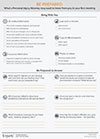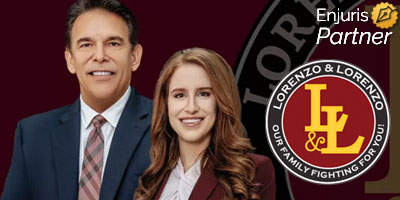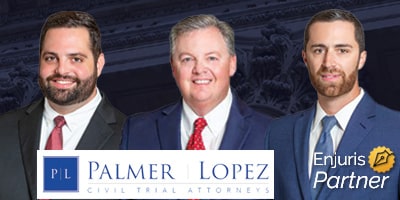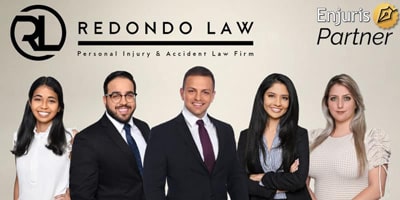Is the business or homeowner responsible if you were injured while on their property?
Premises liability is a form of negligence that holds landowners responsible for injuries that occur to others while on their property.
Florida, like other states, has its own rules and regulations regarding premises liability, and its rules change depending on new court law or statutes that come from the State Legislature. It helps, however, to take a look at some property law basics to really understand how premises liability works.
Premises liability basics
Premises liability takes a number of forms: dog bites, slip and falls, pool drownings, falling through a rotted porch step, and any other home-related mishap one can imagine in Florida. If it can happen at someone’s residential or commercial property, then it can be sued for.
Whoever owns the property is liable for any injuries that visitors suffer – to a certain degree, and subject to the circumstances of the accident. Visitors to a property are generally split up into three categories so that the court can identify how responsible a premises owner is for that individual’s safety.
This is a person who enters a property owner’s land in order to transact business in which the parties are mutually interested or in response to the landowner’s express or implied invitation.
Property owners owe the highest level of care to invitees. They might enter a grocery store to buy food or a store to get a blouse. Repairmen who are invited into a home to fix a door, for instance, are also considered business invitees.
Property owners must keep their property in a safe condition and either repair or provide notice of any known dangers on the premises. As part of their duties, the owner must regularly inspect the property for conditions that would harm invitees; as such, they might be held responsible for injuries that result because of dangers they should have known about, but did not.
Post v. Lunney, 261 So. 2d 146, 147 (Fla. 1972) differentiates between public invitees and business invitees in the state of Florida.
- A Business Invitee is “... a person who is invited to enter or remain on land for a purpose directly or indirectly connected with business dealings with the possessor of the land.”
- A Public Invitee is “... a person who is invited to enter or remain on land as a member of the public for a purpose for which the land is held open to the public.”
This person enters and stays on a property owner’s land for the owner’s convenience or to advance his interests, with that individual’s permission and consent. This includes social guests. These are afforded the second-highest standard of care. They are typically social guests like friends, family members or the like, and include events like birthday parties or other social celebrations. They can also include uninvited guests like a neighbor stopping by for some sugar.
Tweet this
Property owners must keep their property in a reasonably safe manner and fix unsafe conditions. They must also warn of dangers that they know about. The Florida Supreme Court defined licensees in Stewart v. Texas Co., 67 So. 2d 653, 654 (Fla. 1953).
This is someone who enters onto another person’s property without that landowner’s consent or knowledge. Under the “discovered trespasser’s rule,” if a landowner knows that a trespasser is on his property, he must exercise reasonable care for that individual’s safety.
Even though a trespasser doesn’t have permission to be on the property, the property owner still owes them a limited duty to prevent reckless or intentional injury. An example of this is if a homeowner sets up a rigged gun to protect his property against trespassers, which is a life-threatening situation. The case Post v. Lunney, 261 So. 2d 146, 147 (Fla. 1972), describes a trespasser as someone who “enters the premises of another without license, invitation, or other right, and intrudes for some definite purpose of his own, or at his own convenience, or merely as an idler with no apparent purpose, other than perhaps to satisfy his curiosity.”
Tweet this
Courts use "reasonableness" to determine whether a person is a licensee or invitee. Reasonableness is based on how the average person would handle a particular situation. In other words, the court looks at the evidence the way an average person would in a similar circumstance.
By that standard, a judge or jury can evaluate these factors to determine whether an injured visitor is a licensee or invitee:
- How the visitor is using the property
- Whether the accident was foreseeable (or could’ve been predicted or anticipated by the property owner)
- Why the visitor was on the property
- Whether the owner made a reasonable effort to warn the visitor of a dangerous condition
How premises liability law is different in Florida
Florida’s premises liability law was enacted by statute on July 1, 2010 and reads the following:
Premises liability for transitory foreign substances in a business establishment.—
(1) If a person slips and falls on a transitory foreign substance in a business establishment, the injured person must prove that the business establishment had actual or constructive knowledge of the dangerous condition and should have taken action to remedy it. Constructive knowledge may be proven by circumstantial evidence showing that:
(a) The dangerous condition existed for such a length of time that, in the exercise of ordinary care, the business establishment should have known of the condition; or
(b) The condition occurred with regularity and was therefore foreseeable.
(2) This section does not affect any common-law duty of care owed by a person or entity in possession or control of a business premises.
This is called the “traditional” approach to premises liability, meaning that it looks to foreseeability. The injured person (meaning the plaintiff) has to prove that the business owner had actual knowledge of the dangerous condition – such as a wet spot on the floor or a banana peel – prior to the injury occurring. Was that dangerous condition, in other words, foreseeable?
The Attractive Nuisance Doctrine
Children, as always, can make things a bit complicated. (Not that we don’t love them.) However, special laws have been created in terms of premises liability because children just love shiny things.
The Attractive Nuisance Doctrine is a body of law that was established by statutes and court opinions, and they state that if the victim of a premises liability injury is a child, then there are special legal duties that apply to a property owner.
Florida’s Attractive Nuisance Doctrine specifically states that liability can be imposed if there is something on the property that can be seen as attractive to a child’s natural curiosity, like a swimming pool, construction equipment left unlocked or other “attractive nuisances.”
Other things might include hot tubs, septic tanks, empty refrigerators, gravel pits or just anything “fun” that necessarily hasn’t been child-proofed. See Cockerham v. Vaughan, 82 So.2d 890 (Fla. 1955) and Florida Statute 823.08.
What to look for in a Florida premises liability attorney
Make sure to look for an attorney who makes you feel at ease, who puts your needs first and who devotes the necessary time to your file. Read a lot of reviews and ask people who have used premises liability attorneys before.
If you need someone to help you through this difficult process, read some of the resources below and speak with some of Enjuris listed Florida attorneys who are well versed in this area. They will be able to assist you.

A worksheet to prepare for your first meeting with a personal injury attorney – what to bring, what they'll ask
Download in PDF format
Resources to help you hire the best Florida premises liability lawyer
Did you know that premises liability law varies by state?
Need a lawyer?
What does an injury lawyer do?
A personal injury lawyer helps individuals who have sustained injuries in accidents to recover financial compensation. These funds are often needed to pay for medical treatment, make up for lost wages and provide compensation for injuries suffered. Sometimes a case that seems simple at first may become more complicated. In these cases, consider hiring an experienced personal injury lawyer. Read more
















